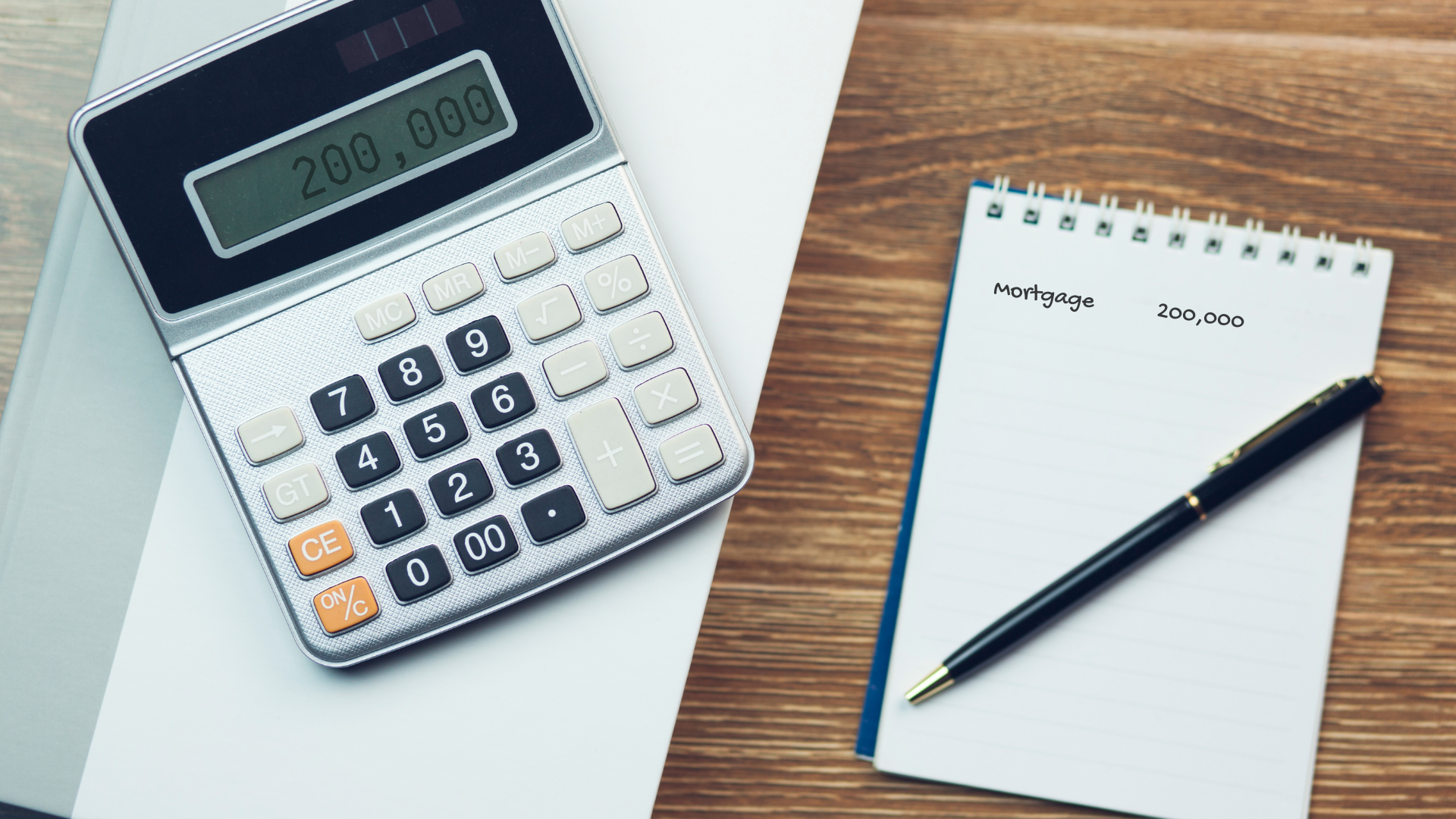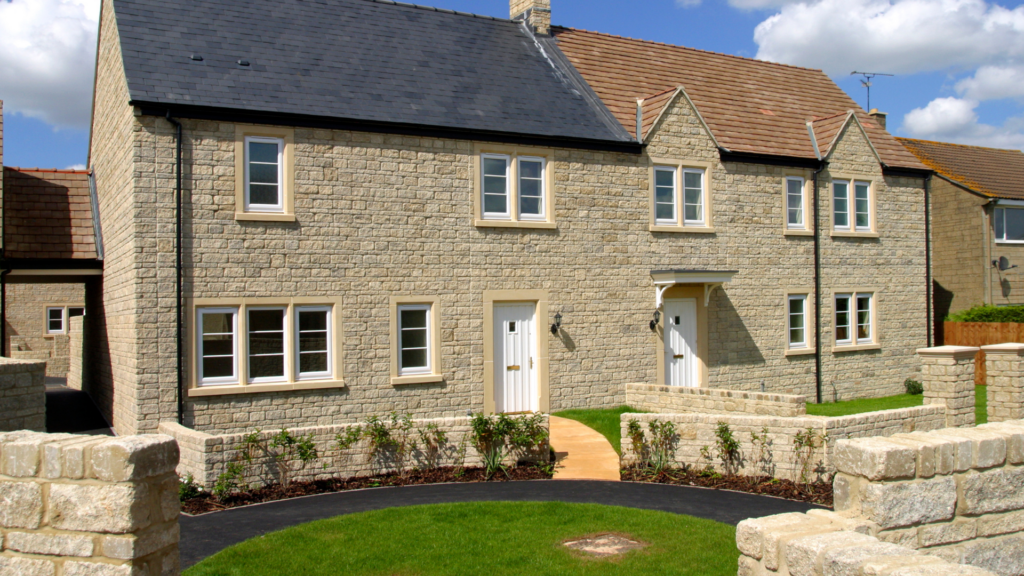- What is a Mortgage Repayment?
- Does the Type of Mortgage I Choose Affect My Repayments?
- How Much Will a £200,000 Mortgage Cost Per Month?
- How Interest Rates Affect £200,000 Mortgage Repayments
- How Mortgage Term Impact Your Repayments
- How Much Income Do I Need For a £200k Mortgage?
- What Deposit Do You Need for a £200,000 Mortgage?
- What Other Costs Should You Consider?
- Things To Consider Before Applying for a £200,000 Mortgage
- Key Takeaways
- The Bottom Line: How To Get a £200K Mortgage?
How Much Will Your £200,000 Mortgage Repayments Be?

Mortgages can be confusing, right? Lots of numbers and tricky words.
But don’t worry, we’re here to help.
Whether you’re buying your first home or remortgaging, understanding what you’ll pay each month on a £200,000 loan is really important.
We’ll explain everything simply, from how much it would cost to what you can borrow.
What is a Mortgage Repayment?
A mortgage repayment is simply what you pay back to your lender each month for borrowing money to buy your home. It covers both the original loan (known as the capital) and the interest.
With a repayment mortgage, you’re steadily chipping away at both the loan and interest over time, so by the end of the term, the house is fully yours.
But if you go for an interest-only mortgage, things work a little differently.
You’ll only pay the interest each month, which keeps your payments lower, but the loan itself won’t shrink. You’ll need to pay off the full amount at the end of the term.
Image
Does the Type of Mortgage I Choose Affect My Repayments?
Absolutely! The type of mortgage you choose plays a big part in what your monthly repayments will look like.
Let’s break down the most common types:
- Fixed-Rate Mortgage. Your interest rate stays the same for a set period, usually between 2 to 10 years. This means your repayments are predictable and won’t change, giving you peace of mind for budgeting. But once that fixed term ends, you’ll usually move onto your lender’s standard variable rate, which could mean higher repayments. So, keep an eye on that.
- Tracker Mortgage (Variable Mortgage). This type follows the Bank of England’s base rate. When the base rate goes up, your payments go up too. When it drops, so do your repayments. It’s a bit of a gamble—great when rates are low but could lead to higher costs if they rise.
Each type has its pros and cons, and the best fit depends on your financial situation and how much risk you’re willing to take on.
Image
How Much Will a £200,000 Mortgage Cost Per Month?
For a £200,000 mortgage, the average mortgage payment depends on a few factors, such as the interest rate, loan term, and mortgage type.
But to give you a ballpark figure, let’s consider a 25-year term with an interest rate of 5%. In that case, your monthly repayments would be around £1,169.
You can lower your monthly repayments by opting for a longer loan term, but this will result in paying more interest overall.
It’s important to find a balance between the monthly repayments and the total interest paid.
For a personalised estimate, use our mortgage calculator. This tool calculates your monthly repayments, total amount repaid, and total interest paid based on the information you enter.
How Interest Rates Affect £200,000 Mortgage Repayments
Interest rates play a massive role in determining your monthly mortgage repayments. The higher the rate, the more you pay each month.
Currently, with interest rates sitting around 5% (happy days for savers, not so much for borrowers), it’s essential to shop around for the best deal.
Here’s how different interest rates and loan terms can affect your monthly repayments:
| Term (years) | 2% Rate | 3% Rate | 4% Rate | 5% Rate | 6% Rate |
|---|---|---|---|---|---|
| 5 | 3,507 | 3,594 | 3,683 | 3,774 | 3,868 |
| 10 | 1,885 | 1,978 | 2,073 | 2,171 | 2,272 |
| 20 | 1,060 | 1,160 | 1,265 | 1,376 | 1,491 |
| 25 | 848 | 948 | 1,055 | 1,170 | 1,290 |
| 30 | 790 | 898 | 1,013 | 1,136 | 1,264 |
As you can see, extending the term lowers your monthly payment but comes with the downside of paying more interest over time.
If you shorten your term, you’ll pay less interest overall, but the monthly repayments will be higher. It’s all about what you can comfortably afford each month.

How Mortgage Term Impact Your Repayments
The term of your mortgage – that’s the length of time you take to repay the loan – is another critical factor in determining your monthly payments.
Most mortgages in the UK are taken over a 25-year term, but you can opt for a shorter or longer period depending on your financial situation.
Here’s how it works: a longer mortgage term means lower monthly payments because the amount you owe is spread out over a more extended period.
But, you’ll end up paying more in interest overall.
On the other hand, a shorter term means higher monthly payments, but less interest paid over the life of the mortgage.
For example, on a £200,000 mortgage with a 3% interest rate:
- Over 30 years: Monthly repayment is £843, with a total repayment of £303,495.
- Over 20 years: Monthly repayment is £1,106, with a total repayment of £266,169.
- Over 10 years: Monthly repayment is £1,931, with a total repayment of £231,729.
The choice of term should balance what you can afford each month with your long-term financial goals.
Image
How Much Income Do I Need For a £200k Mortgage?
When you’re applying for a mortgage, lenders will look at your income to determine how much they’re willing to lend you.
Generally, lenders use an income multiple to calculate this – most commonly around 4.5 times your annual salary.
So, how much income do you need for a £200k mortgage? Let’s break it down:
- If the lender uses a 4.5x income multiple: You’d need to earn at least £45,000 per year.
- If the lender uses a 5x income multiple: You’d need an annual income of £40,000.
- If the lender uses a 6x income multiple: You could potentially get a £200k mortgage with an income of £33,333 per year.
These numbers can vary depending on the lender and your financial situation, including any existing debts, your credit score, and the deposit size.
For joint applications, it’s much easier. Your combined salaries can push you well within that range.
For example, if you and your partner each earn £25,000, together, you’ll easily meet the required income
Image about joint mortgages.We have this
To get an accurate estimate of how much you can borrow based on your income, use our mortgage affordability calculator.
What Deposit Do You Need for a £200,000 Mortgage?
Here’s the good news: you don’t need the full £200,000 upfront (phew!).
But you will need a deposit, which typically ranges between 5% and 20% of the property’s value.
So, for a £200,000 home, you’d be looking at saving anywhere from £10,000 to £40,000, depending on what you can manage.
Now, the deposit size, this has a big impact on the kind of mortgage deal you can get. The bigger the deposit, the better.
For example, putting down 20% (£40,000) means you only need a mortgage of £160,000. And you’ll get an LTV of 80%.
Lenders love a lower loan-to-value ratio (LTV) because it makes you look less risky, and that can mean a lower interest rate and smaller monthly payments.
On the flip side, if you can only manage a 5% deposit (£10,000), you’ll need a £190,000 mortgage. This gives you a 95% LTV.
And with that higher LTV, you’ll likely face higher interest rates and bigger monthly repayments.
So, if you can save up a bit more for a larger deposit, it’s definitely worth doing. It could save you money on repayments and open the door to better mortgage deals. 😀
Image
What Other Costs Should You Consider?
It’s easy to focus on the monthly repayments, but don’t forget about the additional costs that come with taking out a mortgage.
These can add up quickly and should be factored into your budget.
- Mortgage Fees. This can range from £500 to £2,000. These include arrangement, valuation, and sometimes booking fees. Lenders charge them to set up the mortgage and assess the property’s value. You might be able to add these fees to your loan.
- Solicitor Fees. You’ll need a solicitor or conveyancer to handle the legal side of things, which usually costs between £500 and £2,000+.
- Survey Fees. It’s wise to have a survey done on the property to check for any potential issues. A basic valuation survey might cost around £250, while a more detailed structural survey could range from £600 to £1,500.
- Stamp Duty. This is a tax on property purchases. The amount varies based on the property’s price and whether you’re a first-time buyer. You can use our updated Stamp Duty calculator to see how much you’ll need to pay.
- Broker Fees. If you use a mortgage broker to help find the best deal, there may be a fee involved.
- Early Repayment Charges. Some lenders charge a fee if you pay off your mortgage early or make overpayments. This fee can be 1% to 5% of the remaining loan amount, depending on your mortgage agreement.
- Home and Life Insurance. Home insurance costs around £150 to £300 yearly. Life insurance varies based on coverage, adding £10 to £50 monthly to your expenses.
All these costs might sound like a lot, but with a bit of planning, you’ll be well-prepared.
Make sure to factor them into your overall budget to keep everything running smoothly—after all, happy days are just around the corner once you’ve got it all sorted.
Things To Consider Before Applying for a £200,000 Mortgage
Before you jump into a mortgage, it’s important to take a step back and assess your overall financial situation.
Here are some key considerations:
- Affordability. Can you comfortably afford the monthly repayments? Use a mortgage calculator to see how different interest rates and terms would affect your payments.
- Credit Score. A good credit score can help you get a better mortgage deal. If your score is less than stellar, consider taking steps to improve it before applying.
- Deposit. The more you can save for a deposit, the better. Not only will it reduce your loan amount, but it could also lower your interest rate.
- Job Security. Consider how stable your income is. If you’re in a secure job with a steady income, lenders may view you more favourably.
- Future Plans. Think about how long you plan to stay in the property. If you’re likely to move in a few years, a shorter fixed-term mortgage might be more suitable.
Key Takeaways
- A typical £200k mortgage on a 25-year term at 5% interest will cost around £1,169 per month.
- For a £200,000 mortgage, you’ll need a salary of £40,000 to £45,000, based on lenders usually lending 4.5 to 5 times your income.
- A bigger deposit (10% or more) can lower your monthly repayments and secure better interest rates.
- Your credit score, deposit size, and income stability all affect your mortgage deal. Planning ahead ensures you can afford repayments comfortably.
The Bottom Line: How To Get a £200K Mortgage?
Getting a £200,000 mortgage is a big step. To make it as smooth as possible, take the time to explore your options, boost your credit score, and save up for a decent deposit.
Once you’re ready, check out our complete guide on How To Get a Mortgage in the UK to walk you through the key steps.
Choosing the right mortgage can save you a bundle in the long run. But finding the best deal can be tricky.
That’s where a mortgage broker comes in handy. A good broker knows the mortgage market like the back of their hand and can help you find the perfect deal for you.
This saves you time, money, and stress.
Ready to chat? Get in touch, and we’ll hook you up with a qualified mortgage broker to make your mortgage journey easier.
Get Matched With Your Dream Mortgage Advisor...

Frequently asked questions
How can I lower my monthly repayments on a £200,000 mortgage?
You can lower your monthly repayments by securing a lower interest rate, opting for a longer mortgage term, or increasing your deposit size.
What happens if I miss a mortgage payment?
Missing a mortgage payment can negatively impact your credit score and may lead to penalties from your lender. If you’re struggling to make payments, it’s important to contact your lender as soon as possible to discuss your options.
Should I get a fixed-rate or tracker mortgage?
It depends on your financial situation and your tolerance for risk. A fixed-rate mortgage offers stability, while a tracker mortgage could be cheaper if interest rates remain low. However, if rates rise, your repayments could increase.




